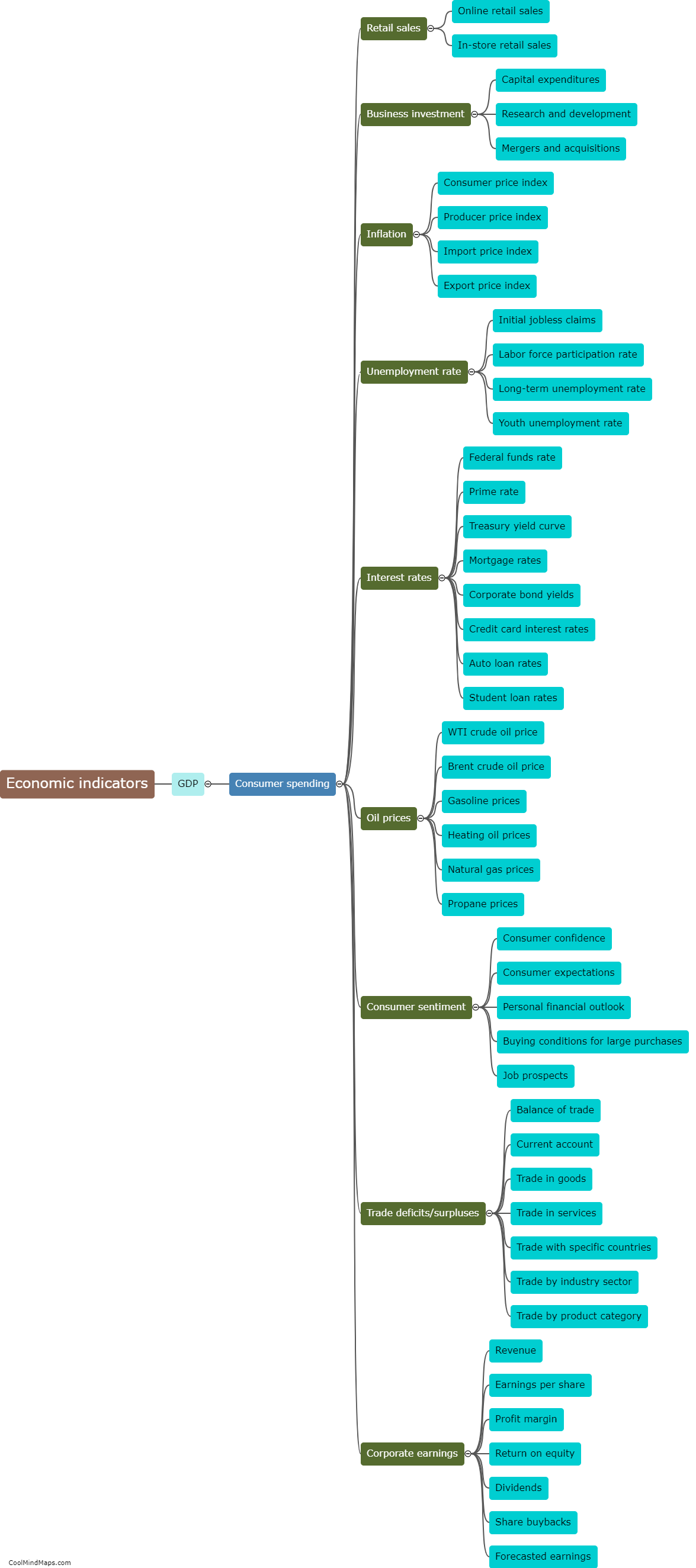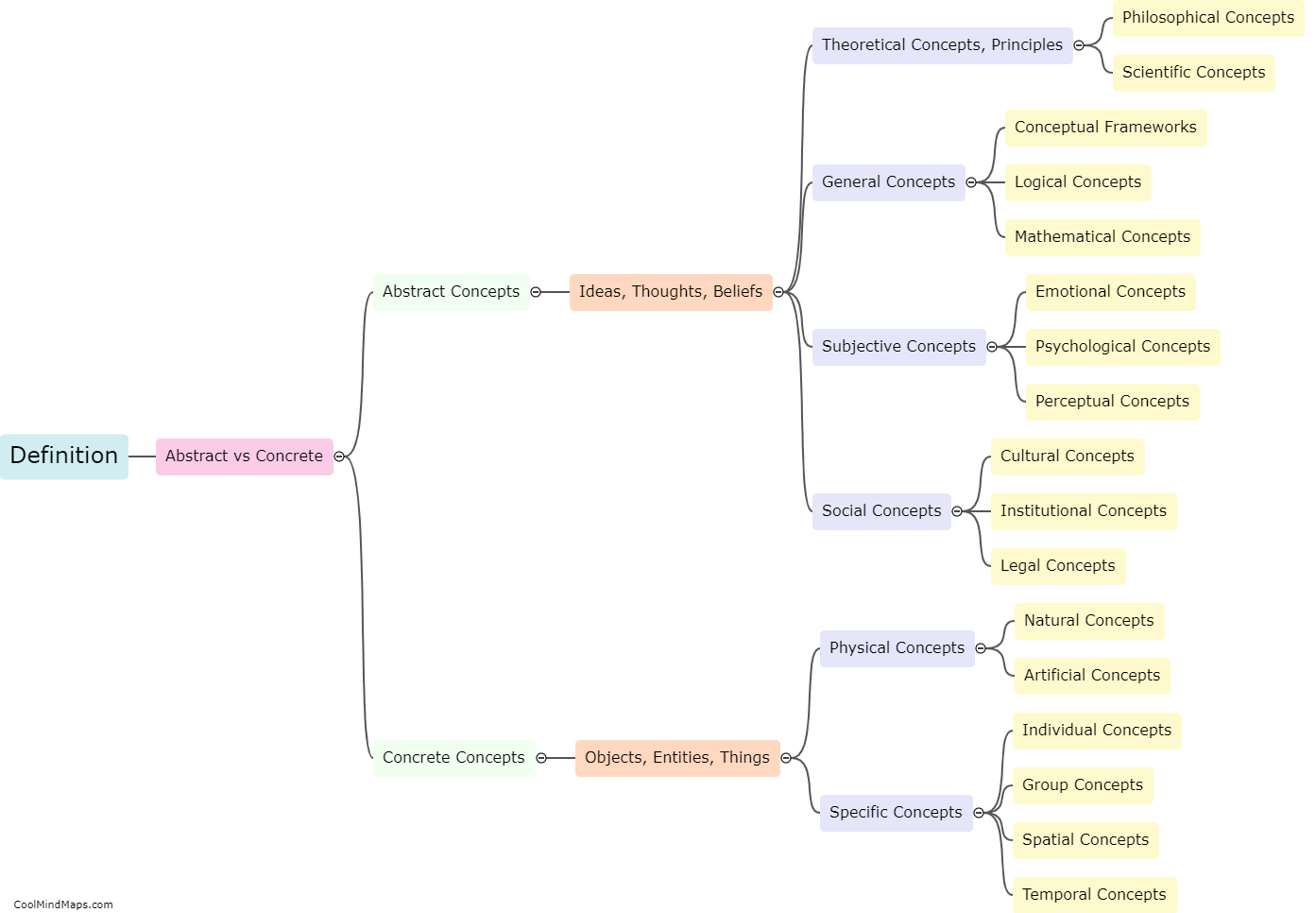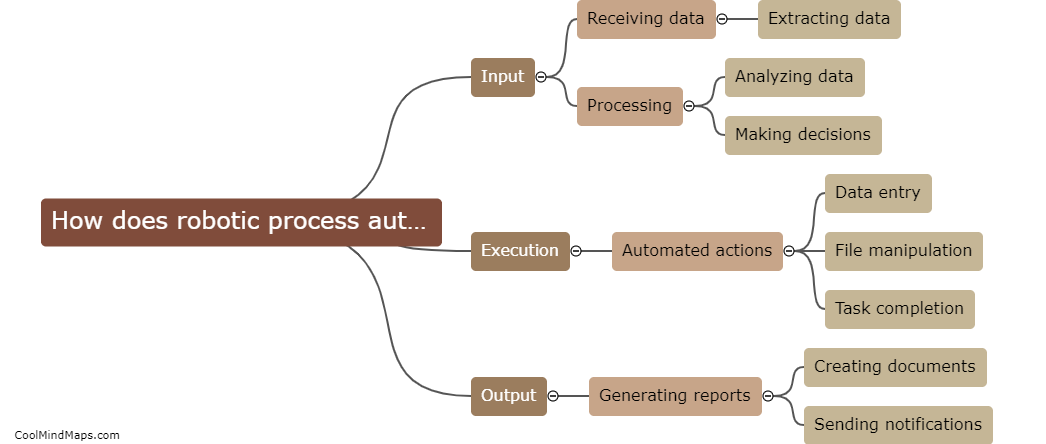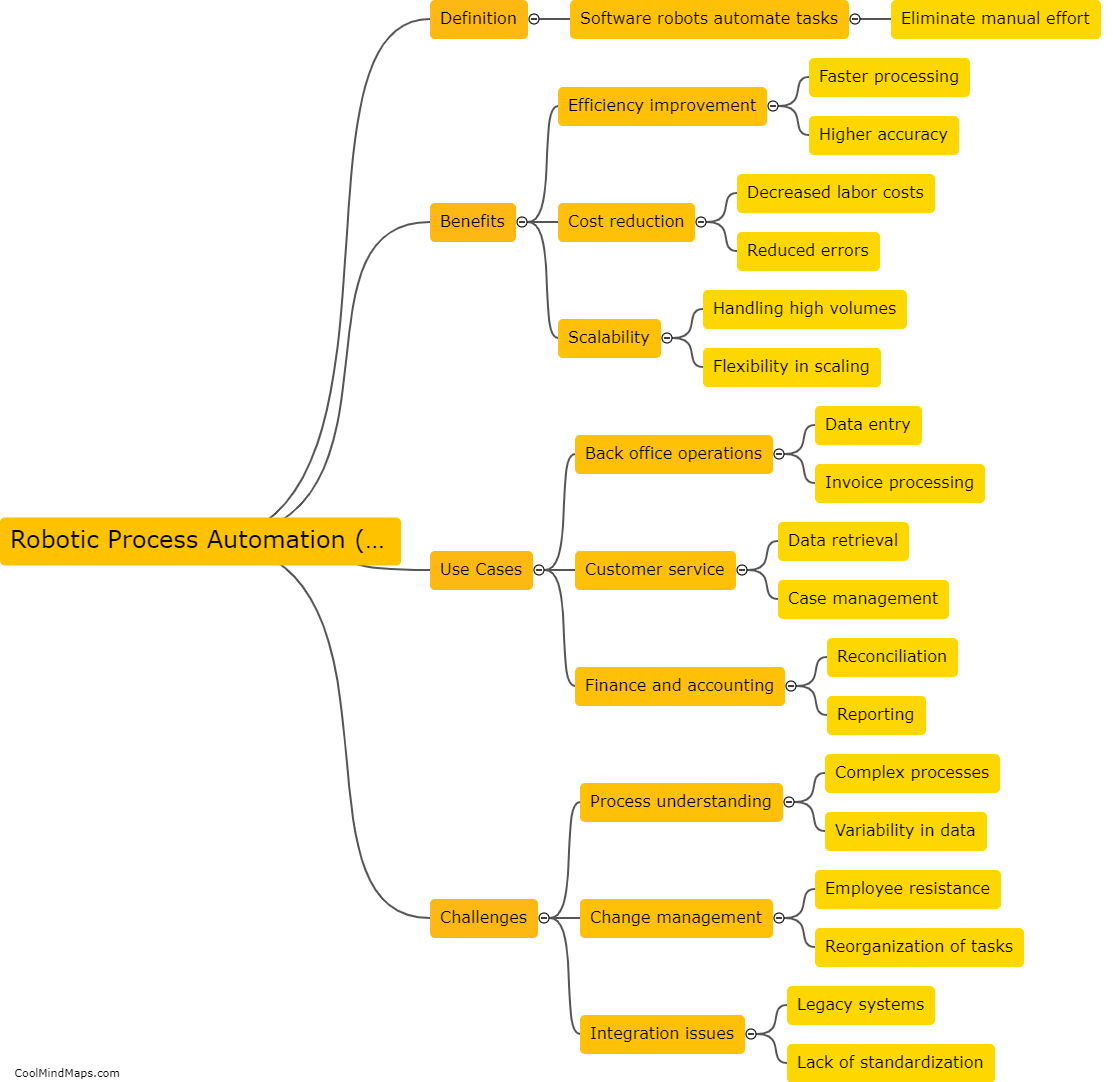What are the benefits of implementing robotic process automation?
Robotic Process Automation (RPA) offers numerous benefits to organizations across various industries. Firstly, the implementation of RPA reduces human errors and enhances accuracy in repetitive tasks. By automating these processes, organizations can ensure consistent and precise outcomes, leading to increased operational efficiency. Additionally, RPA reduces costs by eliminating the need for manual labor and streamlining workflows. It enables employees to focus on more strategic and value-added tasks, improving overall productivity. RPA also enables organizations to achieve faster cycle times and improve customer service by reducing response times and enhancing process speed. Furthermore, RPA provides improved compliance and auditability, as automated processes can be easily tracked and monitored for regulatory purposes. Overall, the adoption of robotic process automation can deliver significant benefits in terms of cost savings, productivity, accuracy, and customer satisfaction.
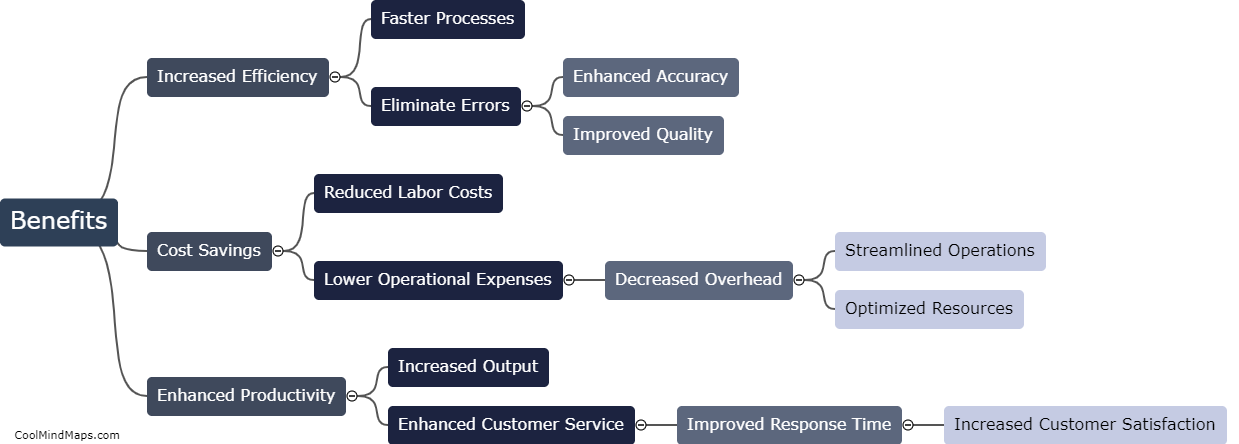
This mind map was published on 1 August 2023 and has been viewed 103 times.





